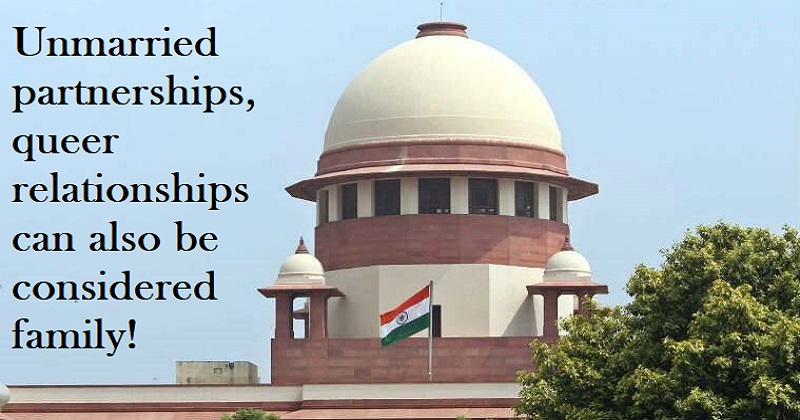
To keep up with the times and advocate for inclusivity, the Supreme Court of India issued significant rulings on Monday that broaden the definition of traditional family units to include queer and unmarried relationships. The court stated, ‘Family relationships may take the form of domestic, unmarried partnerships, or queer relationships’.
In most societies, the term ‘family’ refers to a structure composed of a mother, father, and their children. The court addressed this preconceived notion, saying, ‘This assumption ignores both the many circumstances that may lead to a change in one’s familial structure, and the fact that many families do not conform to this expectation to begin with’.
Adding to its earlier statement, the bench of Justices DY Chandrachud and AS Bopanna stated that atypical family units are also entitled to equal legal protection. ‘ For a variety of reasons, such as the death of a spouse, separation, or divorce, a household may become a single-parent household. Similarly, the guardians and caretakers of children (traditionally the ‘mother’ and ‘father’) may change as a result of remarriage, adoption, or fostering’.
‘These expressions of love and family may be unusual, but they are just as real as their more-traditional counterparts. Such atypical manifestations of the family unit are equally deserving of legal protection as well as social welfare benefits’. The court stated that the black letter of the law must not be followed, which disadvantages non-traditional family structures, and added:
‘The black letter of the law should not be used to discriminate against non-traditional families. The same is undoubtedly true for women who take on the role of motherhood in ways that may not be represented in popular culture’. The Supreme Court made the aforementioned observations while hearing a case titled ‘Deepika Singh versus Central Administrative Tribunal.’
According to reports, the complainant was denied maternity leave for her biological child by her employer, claiming she had already taken care of her spouse’s child from an earlier marriage. ‘ The fact that the appellant’s spouse had two biological children from his first marriage would not affect the appellant’s entitlement to maternity leave for her sole biological child,’ the bench wrote in its decision.

Post Your Comments